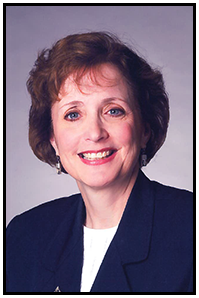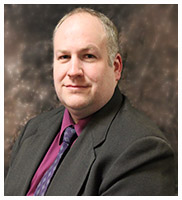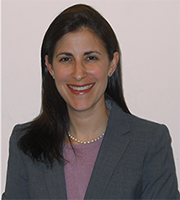Compliance & Security

Care to Care has proudly been URAC accredited since 2009. As an organization that is URAC accredited in Health Utilization Management, Care to Care operations follow strict State and Federal regulatory requirements. Care to Care's protocols are HIPAA and PHI compliant. Our compliance ensures that members' confidential information is safely secured.
As part of our compliance mechanisms, we not only maintain our stature in good stead with regulatory agencies, but we remain fully transparent to our clients as well. Care to Care offers a robust reporting package, however, Care to Care can customize that reporting to fully incorporate any standards our clients deem necessary.
Why are ethics and compliance important to Care to Care?

All week we have received insight on Ethics and Compliance from our internal experts. They have made us aware of the steps they take every day to ensure that Care to Care acts ethically, and remains compliant. Those words have shed light on just how challenging our world has become.
The rules of conduct, ethics, guide every member of the Care to Care team in our daily actions. No matter what is occurring around us, our ethics must remain true to the MISSION. All stakeholders (clients, providers, members/patients, regulators, colleagues) are counting on that. We are held to the highest standards by these stakeholders, and as you know would have serious penalties if adherence is not reached.
The rules of compliance, particularly in the healthcare space are complicated and interesting. They become more intense daily. The expectation is high, and Care to Care remains ready for the task. Whether we are speaking of modifications to CMS regulations (Centers for Medicare & Medicaid Services) and HIPAA (Health Insurance Portability and Accountability Act) and the like; upgrades to what URAC (Utilization Review Accreditation Commission) expects of Care to Care; or cyber threats to our systems. These are all pieces to the master puzzle, and the puzzle must be complete.
My appreciation and a hearty thank you for all you do to ensure the Celebration of Compliance and Ethics Week is just not an accuse to mix business with fun, but has true meaning at Care to Care.
Barbara Kelman
Chief Executive Officer
Why is compliance important in Information Systems?

We’ve all taken the HIPAA class and we’ve been through the URAC audit. We know about the civil and criminal penalties of noncompliance and we know the dangers of failing an audit. However, at the heart of the matter compliance is still an extension of providing care in the best interest of the patient.
We exchange millions of records with our clients that are valuable PHI. An interruption in that exchange could result in a delay of patient care and a data breach could have negative repercussions for all parties involved including the member. Our CarePortal is available 24/7 and if our services are down that could also result in a delay of care and if our services are compromised we also have the possibility of a data breach.
There are many potential threats to our organization ranging from hackers and malware to simple typos or people giving us the wrong fax number. Putting forth the effort to be compliant in all of our transactions with Information Systems makes it second nature and makes doing the right thing easier in the long run. If we really want people to get “The right test at the right time” we will always do our best to stay compliant.
Louis Hendricks
Vice President of Information Systems
Why is Compliance and Ethics important in Medicine?

National Compliance and Ethics Week offers a great opportunity to shine a spotlight on the importance of compliance and ethics at Care to Care and in the entire healthcare system at large. The culture of compliance is at the core of medicine. This begins for doctors with the mandatory Hippocratic oath which is frequently recited at the beginning of medical school and again at its culmination, when the medical degree is received. The Hippocratic oath states the obligations and proper conduct of doctors, laying the groundwork for a career devoted to the care of others through strict adherence to medical ethics and compliance to government laws, hospital regulations, and specialty society guidelines. It is this strict obedience to an unyielding moral code that makes the physician worthy of the trust that the patient bestows on him, a trust that is essential in the physician-patient relationship. Physicians are entrusted with the most personal information by their patients and are obligated to maintain complete privacy and security of this health care information. Our compliance with federal HIPAA laws is only one way that compliance plays an integral role in the physicians’ daily responsibilities.
Here at Care to Care, the medical directors and physician reviewers are dedicated to maintaining the highest degree of compliance and are committed to upholding the oath we took many years ago.
Rachel Title, MD
Chief Medical Officer
Why is Compliance and Ethics important for the Contact Center?

Every Contact Center has to ensure that both their technology and their people are acting in compliance at all times. The contact center has so many responsibilities regarding that relate to compliance. Let us start with HIPAA & PHI regulation, we are the first line of defense on verification for our client’s members. We are responsible for making sure the correct procedure is requested for the correct member. Contact Center Ethic, these are the unwritten laws in nature, codes that we live by. We want to make sure we a giving the best service, no matter what the situation may be. Doing the right thing even though it may take a little longer or it might be a little harder. We must safeguard all aspect of what we do, hear, see and speak.
Hear: Make sure what we hear is correct and re-iterate for confirmation.
See: What we heard is the right information we submitted and view for verification.
Speak: Ensure we only speaking the necessary information to a specific provider that will not compromise compliance or any HIPAA regulations.
Do: What we do after confirming is very important. We ensure the correct information is sent to the appropriate parties that are strictly involved with that particular request.
We strive to be the best, because simply we are the best.
Jamal MitchellDirector of Contact Center




